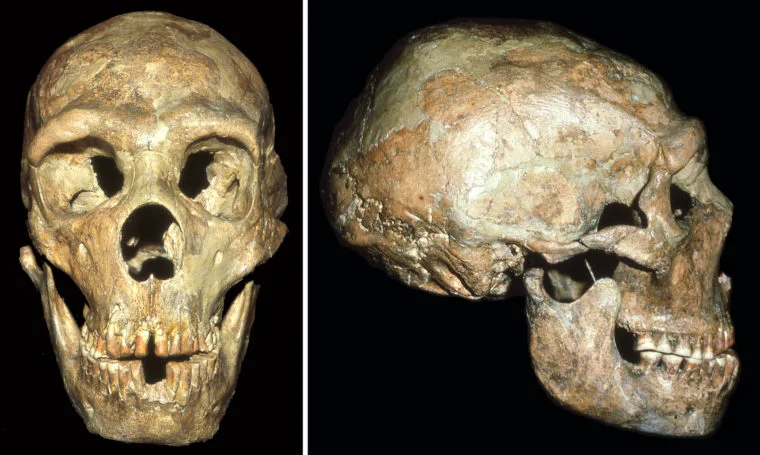 |
| The skull of a Neandertal known as Shanidar 1 show signs of a blow to the head received at an early age. Photo: Erik Trinkaus |
Here we have lovely evidence that altruism and compassion are not uniquely modern human characteristics, as creationists would have us believe.
A 50,000 year-old Neanderthal, unearthed in 1957 during excavations at Shanidar Cave in Iraqi Kurdistan and know to science has Shanidar 1, shows evidence of old injuries and medical conditions that would have made independent existence in the Pleistocene impossible.
A new examination of the skeleton by Erik Trinkaus of Washington University in St. Louis and Sébastien Villotte of the French National Centre for Scientific Research, shows that the male in his 40s (believed to be elderly for a Neanderthal) must have received considerable support and care following his injuries which would have made hunting and foraging difficult or impossible. He is unlikely to have avoided falling prey to the many predators in the Pleistocene.










































